Franz Beckenbauer
Franz Beckenbauer is undoubtedly one of the best players in history and the best libero of all time. Technical, excellent defensively and very good offensively, he had it all.
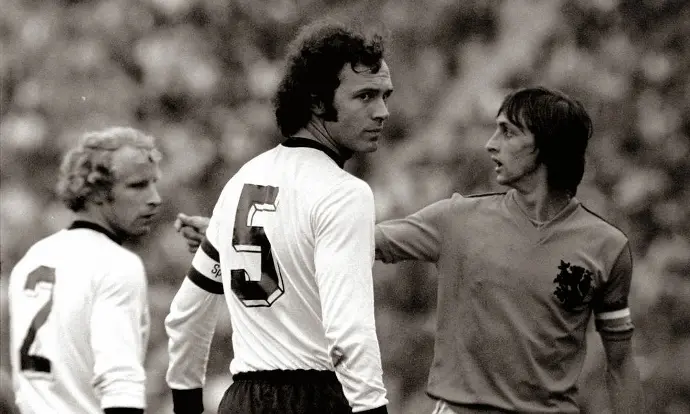
Games
Goals
Assists
Trophies
1964/77 Bayern Munich (GER) 567 games, 72 goals
(German Championship: 396 games, 44 goals)
(Regionalliga Süd: 37 games, 17 goals)
(German Cup: 57 games, 5 goals)
(European Champion Clubs' Cup: 40 games, 4 goals)
(UEFA Cup Winners' Cup: 23 games, 1 goal)
(UEFA Cup: 8 games, 1 goal)
(Intercontinental Cup: 2 games)
(UEFA Super Cup: 4 games)
1977/80 New York Cosmos (USA) 105 games, 21 goals
1980/82 Hamburg SV (GER) 38 games
(German Championship: 28 matches)
(German Cup: 5 matches)
(UEFA Cup: 5 matches)
1982/83 New York Cosmos (USA) 27 matches, 2 goals
With the National Team :
103 caps, 14 goals
(Friendly matches: 56 caps, 9 goals)
(World Cup qualifiers: 7 caps)
(World Cup: 18 caps, 5 goals)
(Euro qualifiers: 18 caps)
(Euro: 4 caps)
1st cap: 19 September 1965 against Sweden (2-1)
Last cap: 23 February 1977 against France (0-1)
B: 2 caps
Juniors: 3 caps, 3 goals
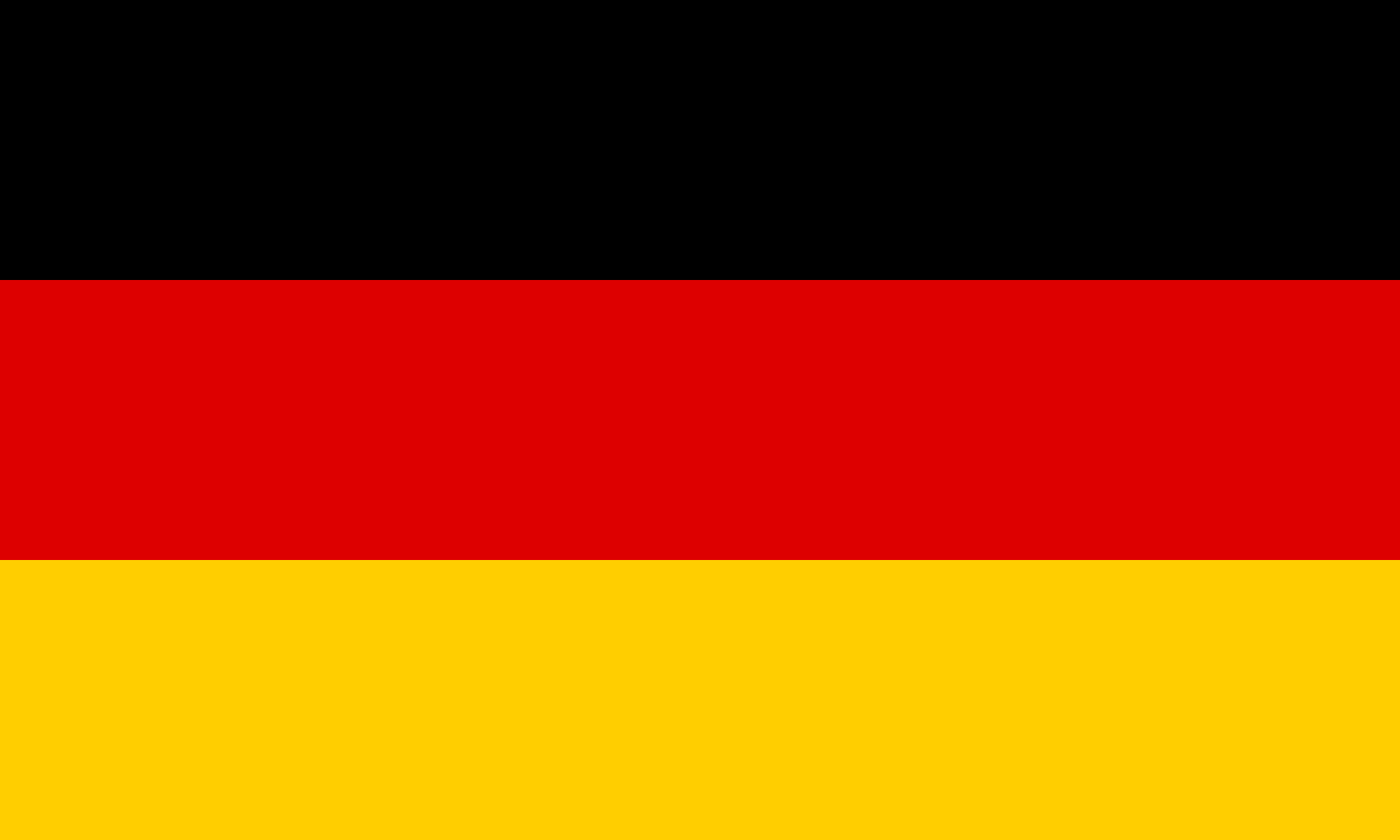
Franz Anton Beckenbauer
Born September 11, 1945 in Munich (GER)
Died January 7, 2024 in Salzburg (AUS)
German, Libero, Center-Back, Central-Midfielder, 1m81
Nickname: Der Kaiser (The Emperor)
The debut of a young winger
Franz Beckenbauer was born on September 11, 1945 in Munich, Germany. He started playing club football at the age of 9 at SC München 06 before joining Bayern when he was 14. Very forward-oriented, he had a rare elegance on the pitch and superb ball control as well as impressive technical qualities, an extremely complete player for his age.
Franz made his professional football debut on June 6, 1964 in a Regionalliga Süd match against FC Saint Pauli. Positioned as a left winger during his first season, he participated with his 17 goals scored in Bayern Munich's promotion.
The best young player of the 1966 World Cup
In 1965, he joined the German national team at the age of 20. Now positioned in club and selection as a midfielder, he participated in the 1966 World Cup. Despite his young age, Beckenbauer will achieve one of the greatest individual campaigns of a player in the history of the World Cup.
During the first match, a 5-0 victory for Germany, he obtained in many media the mark of 10/10, in the position of central midfielder/defensive, he scored a double, made 86% of successful passes, made 2 key passes, succeeded 6 deep passes out of 6 attempted, shot 7 times on goal for 5 shots on target, he won 12 ground duels out of 19, suffered 1 foul and succeeded 6 interceptions, a perfect match.
During the two following matches in the group stage, he was very good, always excellent at recovering the ball and in creating offensive actions. In the quarter-finals, he once again put in an impressive performance, many gave his performance a score of around 9/10, he greatly enabled his team to win 4-0 against Uruguay.
During the semi-final and the final, he again played good matches but could not prevent his team from losing in the final 4-2 against England, Beckenbauer was voted best young player of the competition and left this World Cup with already a football superstar status.
The master of liberos
He then took part in the 1970 World Cup in Mexico where he was once again one of the best players in the competition, he also played the semi-final against Italy with his arm in a sling due to a dislocated shoulder. For about 50 minutes, he played like that, but he still lost the match 4-3, a match that would later be considered "the match of the century". This time Beckenbauer reached 3rd place.
During the 1970s, Beckenbauer became a libero, that is to say a central defender who had the task of being the last line of defense between the goalkeeper and the striker, but also the task of greatly helping his team offensively. With his dribbling, passing and defensive and offensive skills, he was the perfect player for this position.
The long-distance duel with Cruyff
The 1970s saw one of the greatest long-distance confrontations in football history, between Johan Cruyff and Franz Beckenbauer, the two best players of that era. Ajax Amsterdam and Bayern Munich were two of the best teams of the 1970s and of all time.
During this period, whether it was Johan Cruyff's Ajax Amsterdam or Franz Beckenbauer's Bayern Munich, both clubs won 3 Champions Leagues in a row and showed their dominance in European football.
Franz Beckenbauer's ultimate collective glory year was 1974, he won the Bundesliga, the Champions League and the 1974 World Cup with Bayern Munich. In a 3-man defense in the German team composed of Paul Breitner, him and Vogts, he would subjugate world football.
7 games played, 1 assist, an average of 88% successful passes, 83% successful long passes, 4 clean sheets, 1.7 interceptions per game, 56% successful dribbles, 64% won duels including 72% on the ground, a competition managed from start to finish and a world champion title to boot.
Between USA and UEFA Cup final with Hamburg
Having also won Euro 1972, he would participate in Euro 1976 where he reached the final but was beaten by a surprising Antonin Panenka. After a final season in Germany during the 1976/77 season, he decided to join the USA and New York Cosmos where he had an excellent salary.
This change of country pushed the German Football Association to no longer select him with the national team. This put an end to a long career with his country for which he played 103 matches for 14 goals and 10 assists between 1965 and 1977.
Der Kaizer finally retired from football at the end of the 1982/83 season where he played for New York Cosmos. He had a last stint in Germany at Hamburg SV where he won the German championship in 1982 and made a Europa League final at the age of 37.
Trophies :
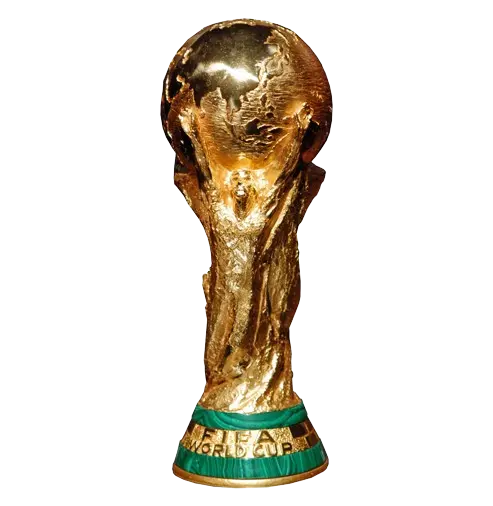
World Cup x1
- 1974 (West Germany)

Finalist World Cup x1
- 1966 (West Germany)

3rd at World Cup x1
- 1970 (West Germany)
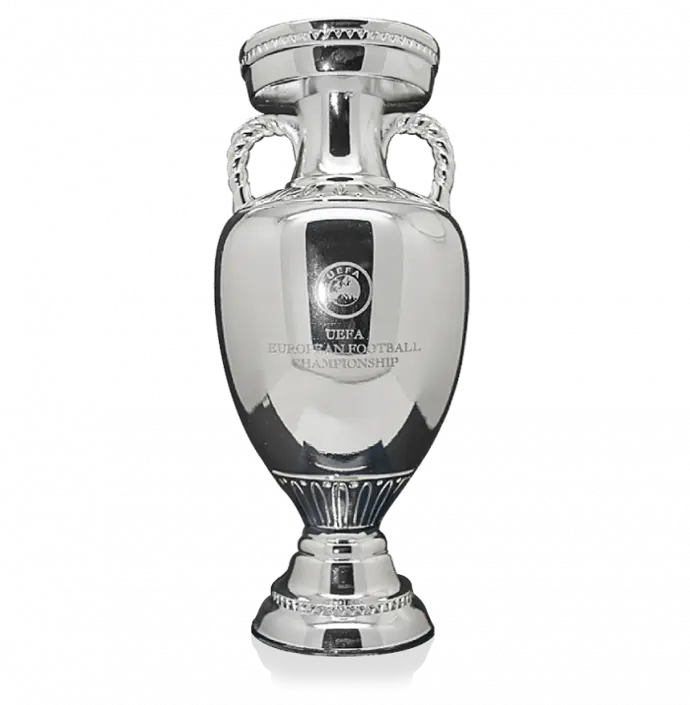
Euro x1
- 1972 (West Germany)

Finalist Euro x1
- 1976 (West Germany)
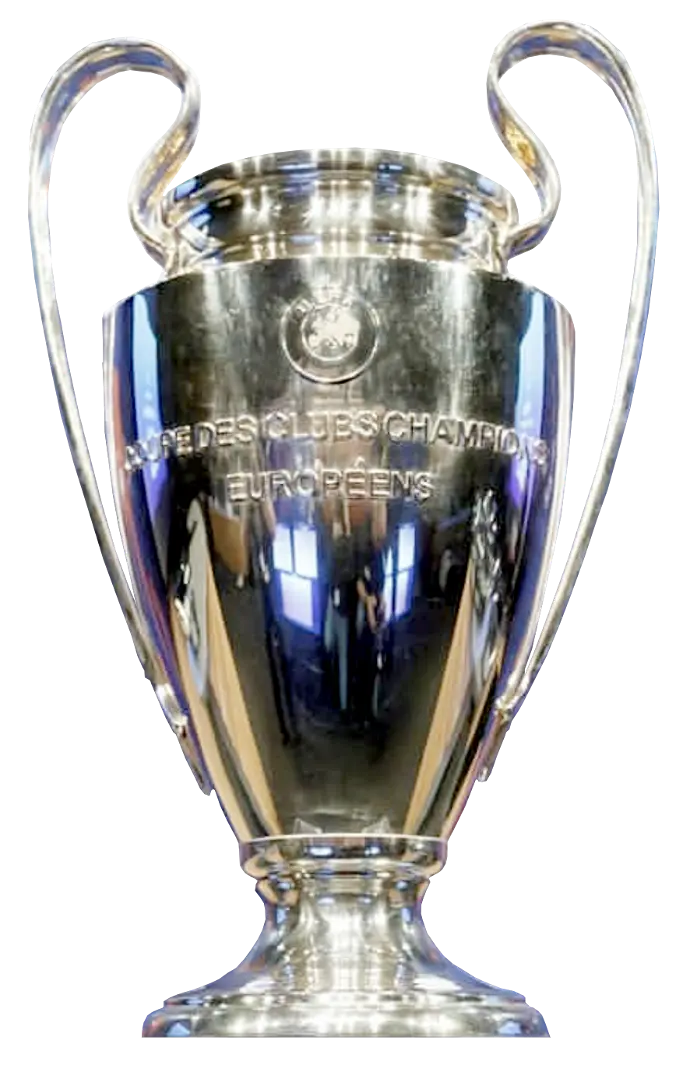
Champions League x3
- 1974 (Bayern Munich)
- 1975 (Bayern Munich)
- 1976 (Bayern Munich)
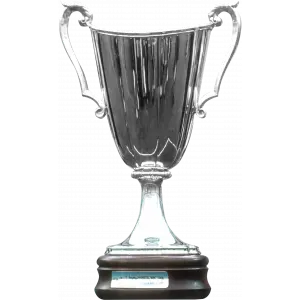
Cup Winners Cup x1
- 1967 (Bayern Munich)
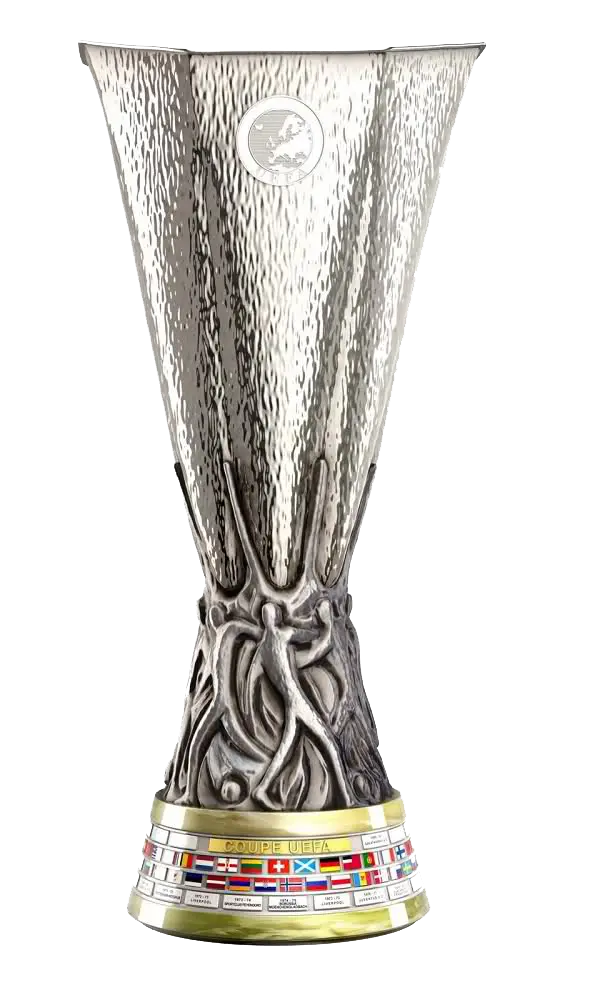
Finalist Europa League x1
- 1982 (Hamburg SV)
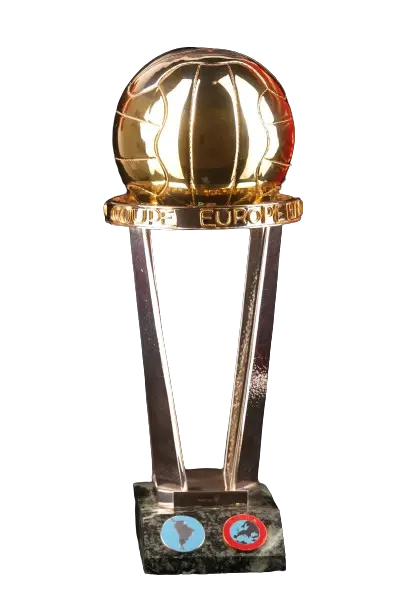
Intercontinental Cup x1
- 1976 (Bayern Munich)
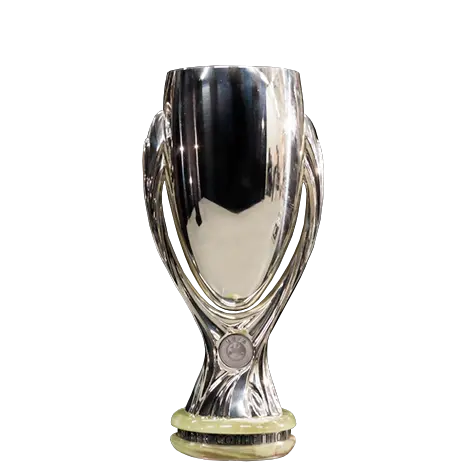
Finalist UEFA Supercup x2
- 1975 (Bayern Munich)
- 1976 (Bayern Munich)
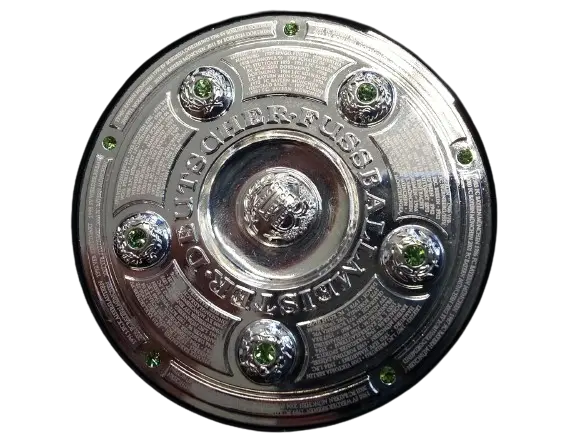
Bundesliga x5
- 1969 (Bayern Munich)
- 1972 (Bayern Munich)
- 1973 (Bayern Munich)
- 1974 (Bayern Munich)
- 1982 (Hamburg SV)

Vice-Champion Bundesliga x3
- 1970 (Bayern Munich)
- 1971 (Bayern Munich)
- 1981 (Hamburg SV)
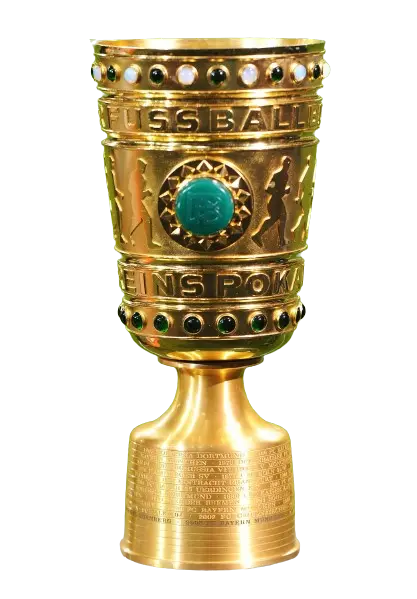
German Cup x4
- 1966 (Bayern Munich)
- 1967 (Bayern Munich)
- 1969 (Bayern Munich)
- 1971 (Bayern Munich)
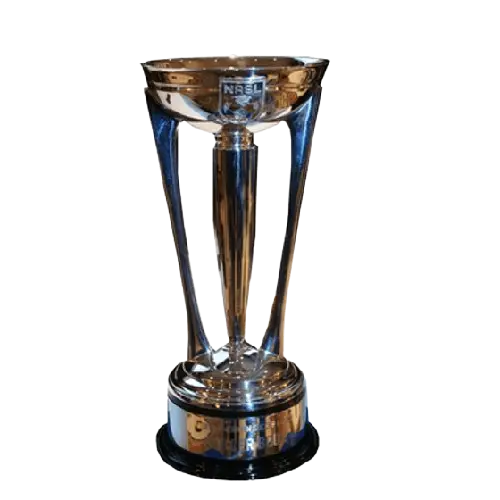
NASL x3
- 1977 (New York Cosmos)
- 1978 (New York Cosmos)
- 1980 (New York Cosmos)
Trans-Atlantic Challenge Cup x2
- 1980 (New York Cosmos)
- 1983 (New York Cosmos)
Individual Trophies :
- 3rd best player of the 21st century (IFFHS)
- Voted best German player of the 21st century in 2000
- Golden Ball in 1972 and 1976
- Silver Ball in 1974 and 1975
- 2nd best player of the World Cup in 1974
- Voted best young player of the World Cup in 1966
- 3rd best scorer of the World Cup in 1966 (4 goals)
- Voted German footballer of the year in 1966, 1968, 1974 and 1976
- Voted CONCACAF zone player of the year in 1977
- NASL MVP of the year in 1977
- Named to the 1966 World Cup tournament team of the year, 1970 and 1974
- Named to the Euro 1972 and 1976 All-Star Team
- Named to the World Team of the 20th Century
- Named to the FIFA Dream Team for the World Cup in 2002
- Named to the All-Time Greatest 11 by the English magazine "World Soccer" in 2013
- Voted German Football Man of the Year in 1990 and 2006
- Voted among the "legends" of football by Golden Foot in 2010
- Voted among the "legends" of sport by the Spanish newspaper Marca in 2012
- FIFA Order of Merit in 1984
- FIFA Centenary Award in 2004
- FIFA President's Award in 2012
- UEFA President's Award in 2013
- Voted FAI International Personality of the Year in 1997
- Named to the FIFA 100
- Order of Merit of the Federal Republic of Germany in 1986
- Inducted into the Hall of Fame of German Sportsmen in 2008
- Appointed Honorary Captain of the German National Team in 1982
- Received the Laureus World Sports Awards for Lifetime Achievement in 2007
- Received the Silbernes Lorbeerblatt Medal in 1966 and 1967
- Received the Medal of Honor of the City of Munich in 1995
- Received the Golden Ring of the City of Munich in 1982
- Received the Bavarian Constitutional Medal in 2012
- Bavarian Order of Merit in 1982
- Silver Medal of the Bravo Otto Award in 1976
- Bravo Otto Award Bronze Medal in 1974 and 1975
- Received the "Bambi" Award from the German media group "Burda" in 1986, 1990, 1995 and 2000
- Received the Walther Bensemann Award from the German Academy of Football Culture in 2006
- Received the "Big Brother" Award in 2005
- Received the Joachim Deckarm Award for his efforts in support of the Deckarm Funds in 2014